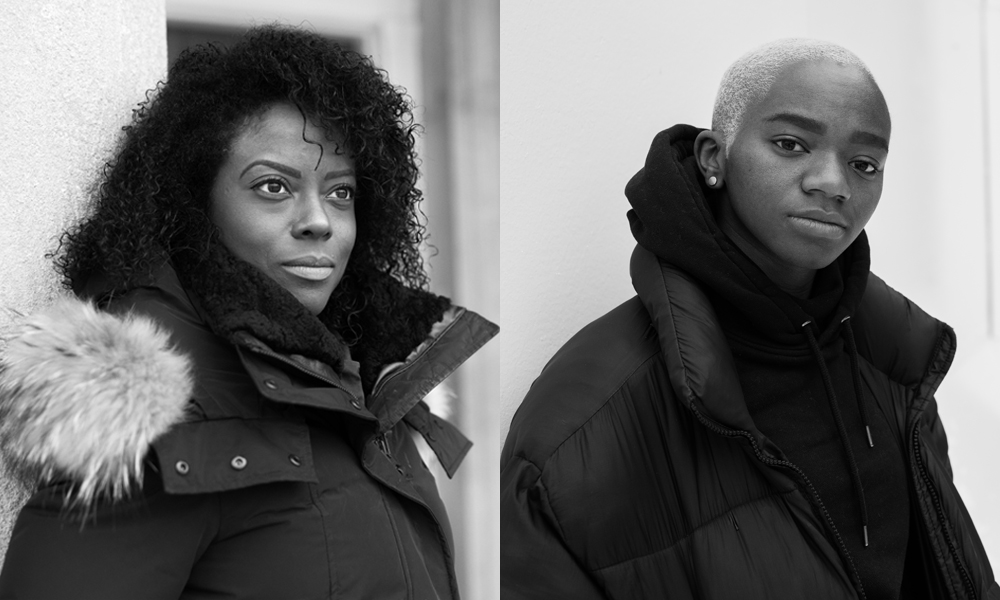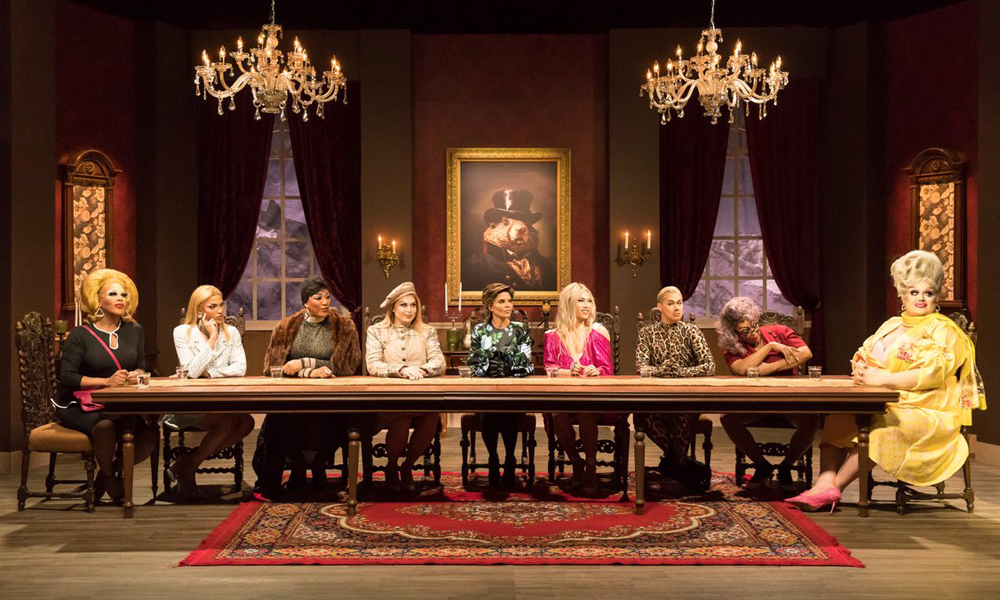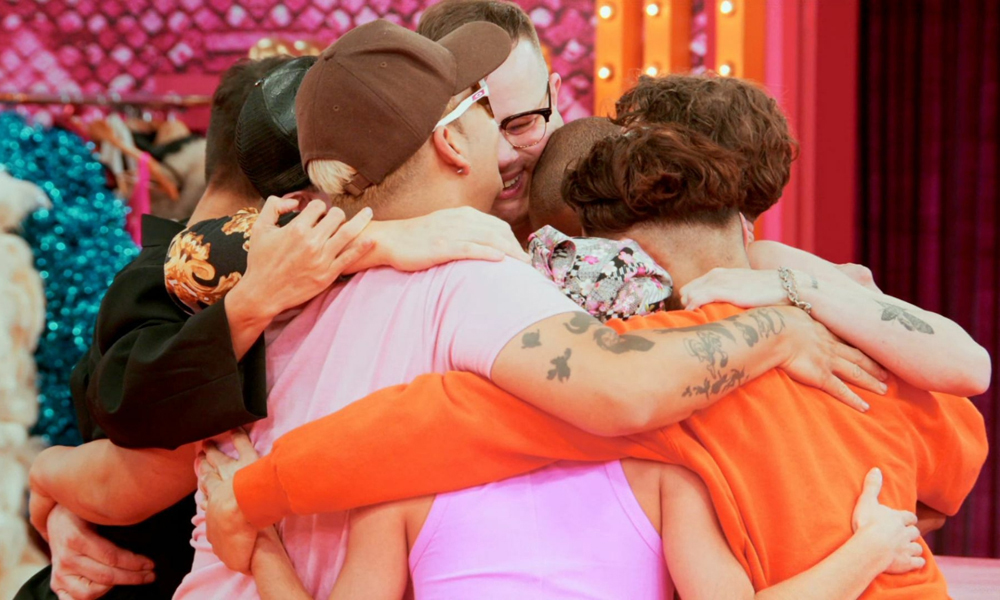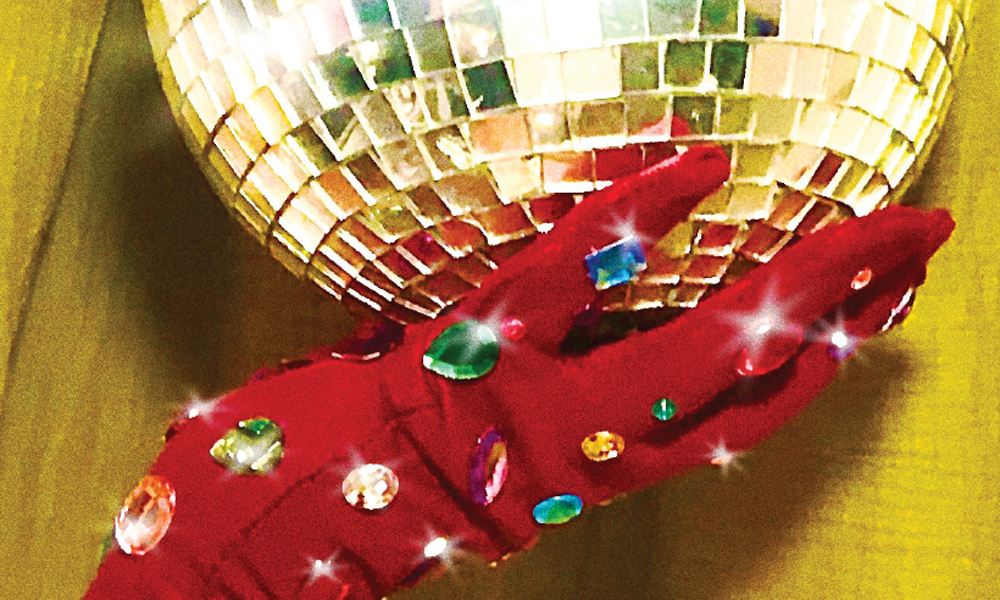Foster and McLaughlin talk about What If We Are Not OK and What If I Am Not Sorry?, a short film in development…
By Colin Druhan
Photos of Shonna Foster (above left) and Bria McLaughlin (above right) by Samuel Engelking
Shonna Foster remembers watching Spike Lee’s Do the Right Thing as a kid when she was home from school with chickenpox. Do the Right Thing and Lee were famously snubbed by the Oscars in 1990, the same year Driving Miss Daisy, a movie about racial discrimination written and directed by white men, won the Academy Award for Best Picture. “At that age I didn’t understand the film entirely, but I was emotional watching it. My heart was impacted and something inside of me was moved by what I can now describe as the power of representation and the power of cinema as an art form,” says Foster who is now a director and producer tackling themes of racial inequality in both the subject matter of her work and in how she chooses to produce projects.
Foster is on the Board of BIPOC TV and Film, a grassroots organization dedicated to increasing the representation of Black, Indigenous and People of Colour in all aspects of television and film production in Canada. As the founder of ShoRick Productions, she also has a personal mandate to only work on productions that are inclusive of BIPOC and LGBTQ2+ as creatives and above/below the line team members. “I love this art form and the collectiveness of it. Film is not a solo creation, it is a process of collective creation and collaboration. I’m not interested in creating with a team that’s not diverse and not representative of the world that we live in.”
Foster is currently in development on a short film titled What If We Are Not OK and What If I Am Not Sorry? The film focuses on Black teenage siblings as each face experiences of racial micro aggressions navigating the world of teenage-hood in the suburbs of Toronto. It was written by 18 year-old Alex Gallimore (Grand Army, Falling Water) who will also star in the film. Following a spot light on BIPOC TV and Film’s socials, nonbinary actor, writer and producer Bria McLaughlin, was hired to co-produce the film. McLaughlin says the film is “a powerful piece about young Black people taking up space.” For Foster and McLaughlin that also means taking up space as Black creators in an industry where space has historically been taken up by white executives, writers, directors, and producers etc. McLaughlin says ‘there’s a lot of merit to white people talking to other white people about racism’. But they caution that Black TV and film professionals rarely see any return on this kind of cultural product. “We need white people to speak up when it’s not easy. That means at work and at home. There are many white people who want to help and want to be good allies but the trouble is, sometimes being an ally at work becomes turning their activism into an income stream. When your main anti-racism work as a white person is making you profit, I question who this work is actually for. Racialized people don’t need to be re-traumatized through a lens that is not our own.”
Foster and McLaughlin are hopeful the film can start shooting in the latespring pending they can secure additional financing and acknowledgethe challenges presented by the pandemic. Covid, however, is only part of the uphill battle ahead for What If We Are Not OK and What If I Am Not Sorry? Despite increased attention and calls to action for the movement for Black Lives throughout 2020, Foster and McLaughlin say while great change is happening, especially in the television space, there seems to be a long way to go before we will start to see tangible change for Black filmmakers in Canada. “Bria and I have a lot of conversations about the state of the world and our industry right now. Yes, all these changes are timely, but it’s kind of always been ‘timely’” says Foster. She says while some people in the industry may be confronting the subject of racism and systemic racism for the first time, it is important to recognize and acknowledge those who have been dealing with these barriers across their entire careers and their entire lives. McLaughlin says some of the themes in What If We Are Not OK and What If I Am Not Sorry? reflect those experiences, particularly those of Black queer and trans people. “I feel like the title really captures it: we are not OK. Being able to take up space and take ownership of that is powerful.”
Foster and McLaughlin are both clear that their support of diverse talent on both sides of the camera is not about wanting more Black stories just for the sake of representation. To McLaughlin it’s also about investing in talent to tell stories as honestly and authentically as possible. They say that honesty helps immerse the viewer in another’s experience. “It’s exponentially more useful for us to be able to see ourselves in people who are nothing like our own lived experience,” explains McLaughlin, adding “that is literally how you build empathy.” They reject the idea that engaging diverse talent is about lowering the bar on talent, as is often suggested by those who resist calls for more diverse production teams. “There is a hesitation about taking chances on up and coming talent. We see this a lot with trans actors being overlooked.” says McLaughlin. “When it comes to stories about trans women, even the most talented cis guy is much more of a risk than a trans woman with no acting experience. She can learn her lines. He can’t learn empathy.”
The most vocal critics of inclusion efforts tend to focus on what they have the potential to lose when diversity is encouraged in the workplace: their own power. They assume that more opportunity for marginalized people means less for them. Foster and McLaughlin see things a bit differently. Both have significant experience in TV and film and both keep lists of people they can recommend when colleagues are looking for talent. “We have to hold the door for each other,” says McLaughlin. Foster, who keeps a lengthy spreadsheet of emerging to senior level highly qualified BIPOC and LGBTQ2+ professionals on hand, believes a lot of industries could benefit from doing the work of building more diverse networks and utilizing the tools and databases that are out there and ones that have recently launched such as HireBipoc and Access Reelworld. She says it’s difficult to hear complaints about a lack of diverse talent. “It bothersme when I hear this. Because we’re here. We’ve been here. We’ve been wanting access and the opportunity to work. The onus is on those complainingto also do the work. The onus is on them to populate and have these spreadsheets on hand as well.”
With some of its cast secured, What If We Are Not OK and What If I Am Not Sorry? has received mentorship support from Cameron Pictures Inc., an independent production company based in Toronto headed by Tassie and Amy Cameron. Cameron Pictures has also confirmed an in-kind donation to the film. Foster and McLaughlin say they have also received support from people in their personal and industry networks who want to contribute to the project and, to the goal of creating a production and an environment that is diverse and above all else, feels safe. As McLaughlin says, “If you want to bring in diverse talent you have to build a team and an environment that knows how to do that well and safely.”
To learn more about What If We Are Not OK and What If I Am Not Sorry?, including how you can support the project by making a donation, email whatifwearenotokay@gmail.com.
—
COLIN DRUHAN is the executive director of Pride at Work Canada/Fierté au travail Canada, a not-for-profit organization that empowers employees to foster workplace cultures that recognize all employees, regardless of gender identity, gender expression and sexual orientation. For more information, visit prideatwork.ca.






POST A COMMENT